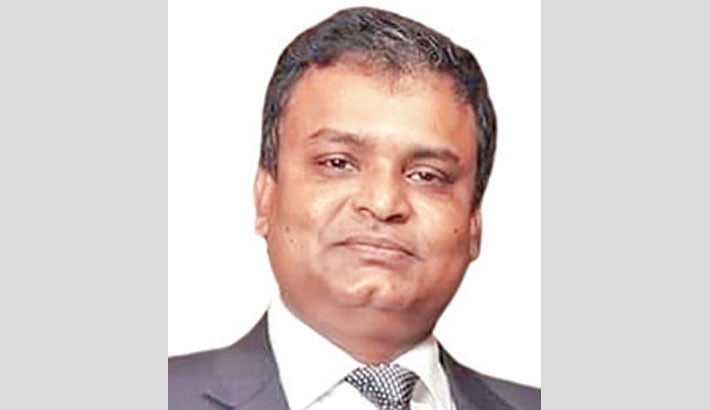Interoperability of Mobile Financial Services: Challenges and Opportunities
Md. Latiful Islam [Source : Daily Sun, 17 May 2025]

Mobile Financial Services (MFS) have transformed the way people access financial services in Bangladesh, especially in rural and underserved areas. Over the past decade, MFS platforms like bKash, Nagad, and Rocket (DBBL) have grown rapidly and become widely used. As the sector matures, the next important step is to make these services interoperable — allowing users to send and receive money across different providers. It’s like you imagine that you take a rickshaw but forget your wallet at home. After reaching your stop, you realize you have no cash. You simply scan the driver’s QR code with your phone and pay the fare.
In January 2025, the Mobile Financial Services (MFS) sector in Bangladesh was facilitated by 13 banks/business entities and supported by a network of 1,841,979 agents, according to Bangladesh Bank data. This infrastructure served a total of 237,763,000 registered customers, comprising 137,260,000 male and 100,503,000 female customers, with 89,384,000 active accounts. The MFS ecosystem included 1,220,000 merchants, which is a combination of 3,59,000 regular merchants and 8,60,000 Point of Recharge Agents. Overall, the total number of MFS users (customers and merchants) reached 239,303,000. The sector experienced a substantial volume of activity, with 721,866,474 transactions recorded, amounting to a total value of BDT 171,664.12 crore. This represents a 7.73% increase in the number of transactions and a 4.20% growth in the total value of transactions compared to the previous month.
Mobile Financial Services (MFS) in Bangladesh enable a wide range of transactions, including receiving remittances, cash deposits and withdrawals, salary disbursements, utility bill payments, merchant transactions, and government payments. However, many users maintain accounts with multiple MFS providers because the systems are not interoperable — they cannot send money directly between different providers. Major MFS operators keep their services siloed, mainly due to technical barriers and to protect revenue. This lack of interoperability limits the true potential of MFS. If seamless transactions between MFS providers and Banks were possible, it would significantly boost transaction volumes, expand usage, reduce reliance on cash, and decrease dependence on foreign payment gateways like Visa, Mastercard, Amex etc.
As part of its vision to establish a cashless economy by 2031, the Bangladesh government has introduced several digital payment initiatives, including Binimoy, Bangla QR, and TakaPay, though adoption remains slow. Binimoy, launched in November 2022 as an interoperable digital transaction platform (modeled after India’s UPI), allows transfers across banks and MFS providers (bKash, Rocket, mCash), but low user-friendliness, less promotions, technical issues and bank reluctance have limited its’ growth—processing only Tk 35.66 crore in 2023.
Later on, the government launched Bangla QR in 2023 to promote cashless payments through mobile scanning. However, it faced problems like low bank support, poor app integration, and limited use by shops and customers. As a result, adoption has been slow. Meanwhile, TakaPay, Bangladesh’s first local debit card (launched in November 2023 to reduce forex reliance), faces delays as TakaPay cards are embedded with magnetic stripes, whereas banks have already upgraded from outdated magnetic stripes to secure chip technology. While these platforms hold promise, coordinated efforts—tech upgrades, awareness campaigns, and regulatory incentives—are needed to accelerate their impact.
We may take as a case study of India’s success with the Unified Payments Interface (UPI) offers valuable lessons. Launched by the National Payments Corporation of India (NPCI), UPI processed over 17 billion transactions amounting a range of 22 – 24 lac crore rupees per month by 2025 on an average and contributes to around 80 percent of retail payments across the country. Its API-driven design, real-time settlement, and regulatory backing allowed seamless interoperability between multiple banks and wallets, boosting convenience and accelerating financial inclusion.
Bangladesh’s dependence on global payment gateways like Visa, MasterCard, and American Express for card-based transactions results in significant foreign currency outflows. While exact recent figures are not found in the publicly available data, it's widely acknowledged that reliance on international payment processors incurs significant costs for the country. These expenses arise from transaction fees, currency conversion charges, and other service-related costs, which collectively contribute to the outflow of foreign currency. Successfully implementation of interoperability among mobile financial services, banks, and introducing a domestic card like TakaPay can boost cashless transactions, improve financial inclusion, and significantly reduce the cost of using foreign payment systems.
Technically, interoperability in Bangladesh could be achieved through the development of a central switch governed by a neutral authority, such as Bangladesh Bank or a new public-private partnership. Standardized APIs, secure authentication protocols, and a unified QR code system would allow seamless integration across MFS providers and Banks. Real-time settlements and digital ID verification using the national NID and e-KYC infrastructure can ensure security, compliance, and user trust.
However, achieving interoperability comes with several challenges. Mobile financial service (MFS) platforms use different technical systems, making it hard to connect them smoothly. Leading providers may hesitate to cooperate, fearing loss of customers and weaker brand identity. Bangladesh Bank has set separate policy guidelines for MFS and payment systems, while the new Payment and Settlement Systems Act 2024 offers a strong legal base. Still, progress is slowed by issues like limited infrastructure, cyber security risks, and low public awareness.
In conclusion, interoperability of MFS in Bangladesh is not just a technical upgrade—it is an economic necessity. With strategic implementation, policy reform, and multi-stakeholder cooperation, Bangladesh can build a resilient, inclusive, and efficient digital payment ecosystem. Initiatives like the Interoperable Digital Transaction Platform (IDTP) and TakaPay have set the groundwork; now, the focus must shift to expanding and scaling these solutions nationwide.
The writer is former banker, and Chairman at FinPro Consultants Limited